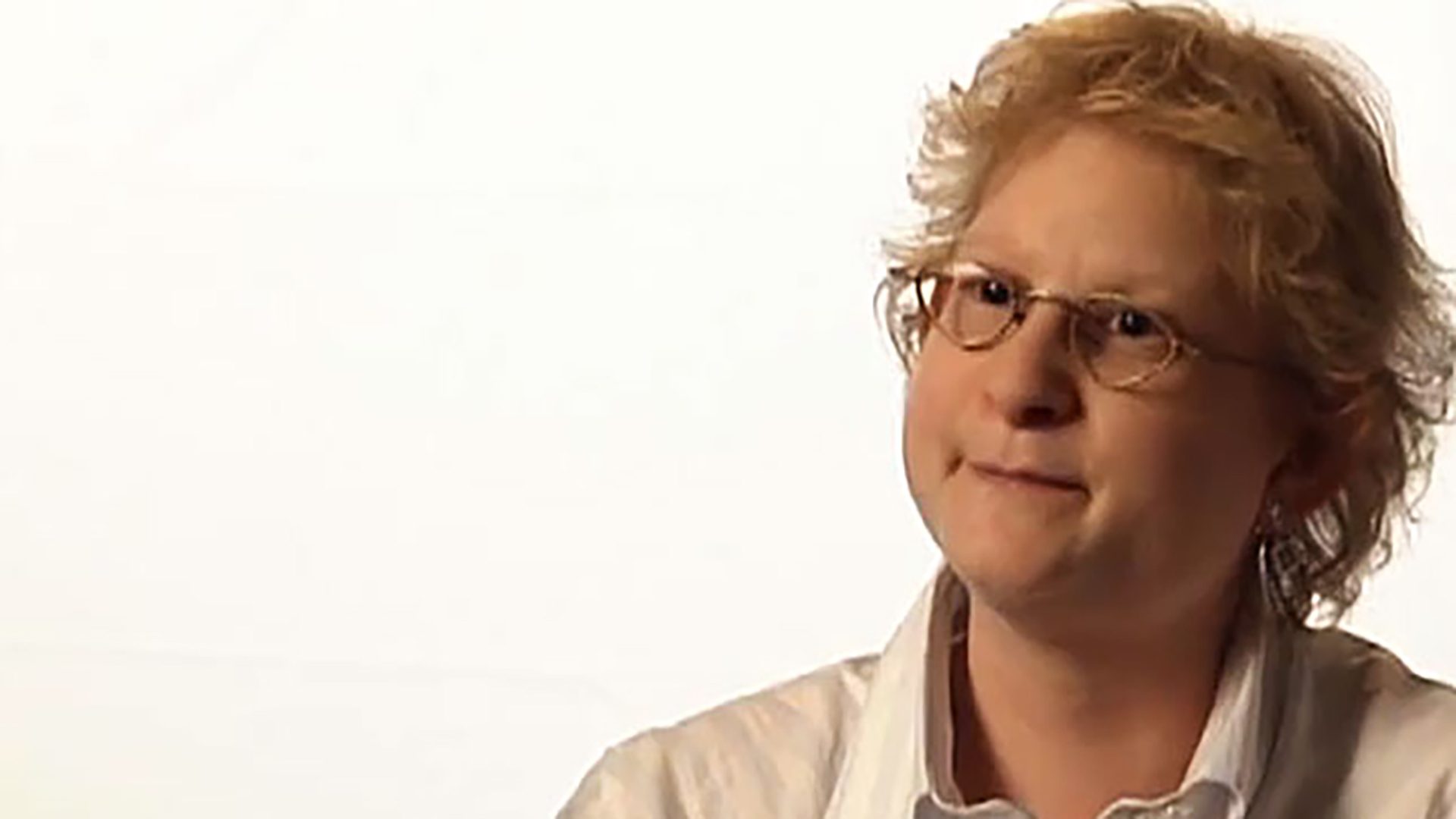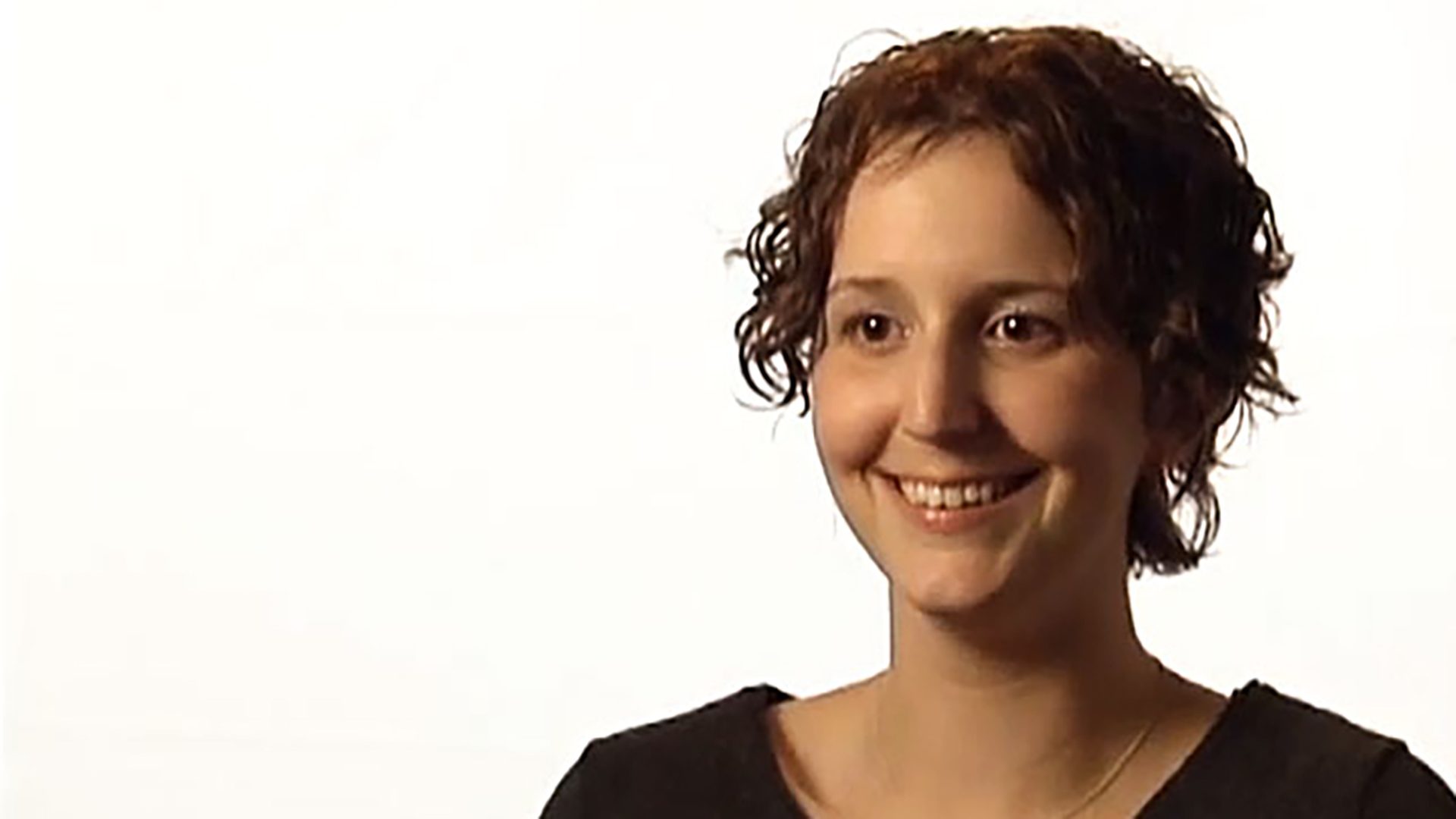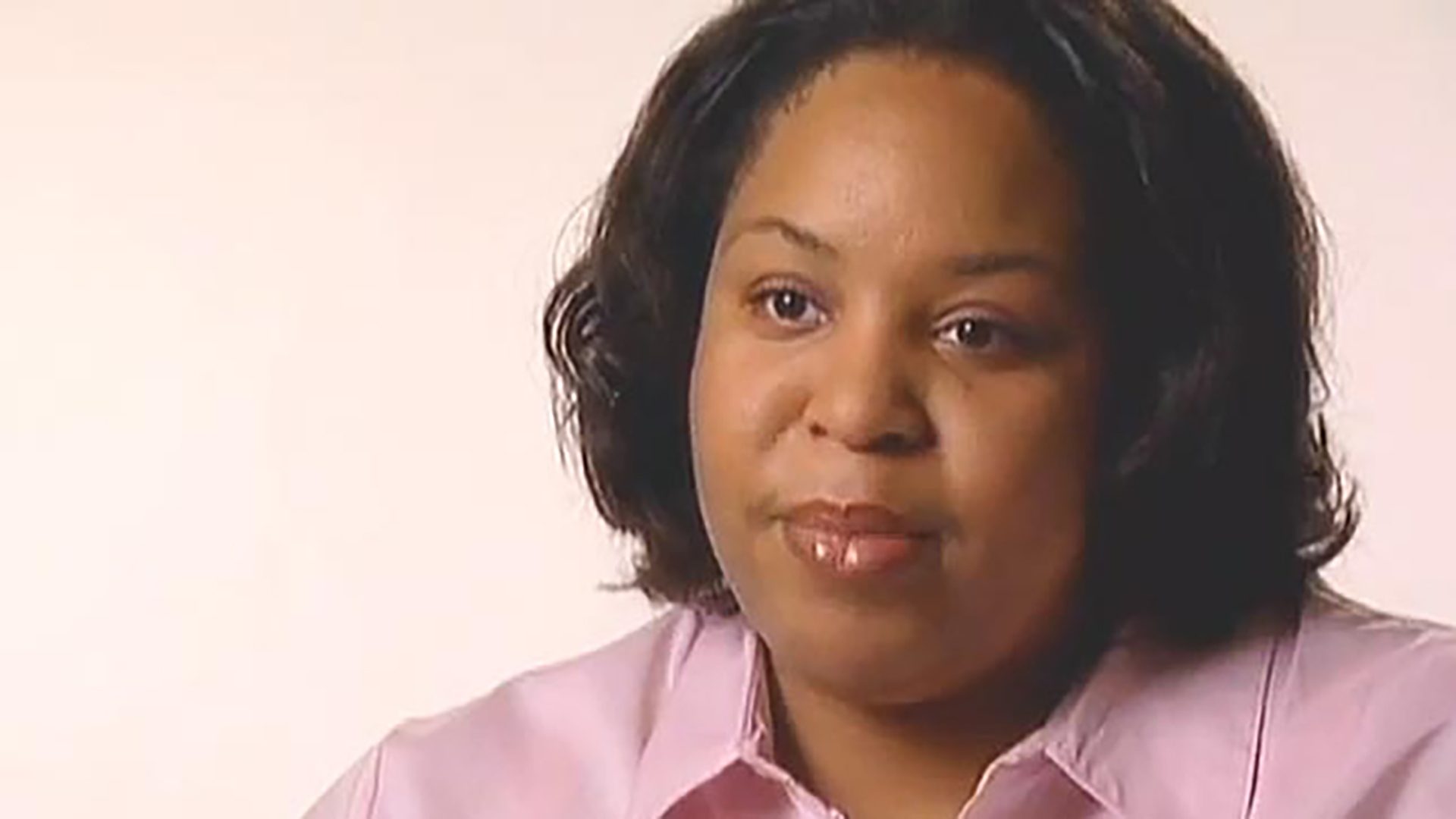Survivor Interview – Liz O.
Liz is a brain tumor survivor. She discusses her experiences with the aftereffects of treatment, getting involved in the community, and managing health.

Technically, it was in my brain, but it was really more in the pituitary gland. I was treated through 1986. I didn’t know it at the time, but I had three relapses, three different rounds of chemo. I was pretty much a guinea pig.
I have a lot of side effects. I have profound hearing loss in both ears and nerve damage to the eyes, so I have limited peripheral vision. I stopped growing, so I never hit puberty. I received a lot of growth hormone as a child and all these other replacement hormones to make up for what I lost. I’m on an adult growth hormone now.
I’m not as worried about second cancers. I’ve had follow-up treatment since I walked out. Sometimes I almost feel like a hypochondriac, but I know that’s not really true.
Right now, I’m worried about health insurance, because I’m in transition of jobs. Going back to school, I’m back to square one. I want to make sure I get all those expensive drugs covered, because you really take them for granted. I was very lucky. I was covered with my parents through college, and my first job in Boston had a great coverage plan. Right now, I’m just finishing up the COBRA from losing that job, so I’m gonna get whammied if I continue. It’s really hard when you spend thousands and thousands of dollars on prescriptions. I’m just trying to figure out what to do and how to afford it.
I’m going to school in the fall, hoping to get a master’s in social work. One of the things that I’d like to help other people with is obvious: the pains and pressures of having to call the pharmacy day in and day out. What to do when they screw up and you don’t have your prescriptions. I was off a prescription for two weeks, and that was not fun, let me tell you. The mail service carriers change, three-month plans, it all changes and you have to be a patient advocate. Hopefully, I can help other people make it not so tough.
I have no pituitary function. Panhypopituitarism, if you want the scientific term. It means that there’s no estrogen, anything related to growth hormone, even testosterone. Right now, it’s just a matter of keeping all those replacement hormones going, now that my body is adjusted to them. That’ll be lifetime. I’ll never get off that.
I’ve been tested for cognitive impairment. I got a little bit nervous about it before I went into the work world. But the only thing that I needed to worry about through school was getting extended time on tests, because I’m a little slower. When I’m taking a test under time, I do a lot worse. I’ve been very lucky that I’ve never missed a grade. I missed 160 days of second grade, but didn’t have to repeat. I had a four-point-something GPA, academic honors, and departmental honors.
I’ve never been ashamed of my cancer or anything that’s come after it. It’s played such a big role in my life that it’s impossible to hide. It all relates back to if you really want to say, “I’m a cancer survivor.” I’m proud of it. It’s part of my life. Eventually someone’s gonna know, because I clown here, volunteer here, go to different activities.
My biggest regret is my hearing. I’m nervous that it will get worse. I’ve gone from one to two hearing aids. I’ve learned to read lips. I’m very dependent on that. It was pretty much right after the treatment when I got the lip-reading therapy in middle school. So I think one ear we knew about closer to the treatment, and the other ear just came along.
That’s the most frustrating because you don’t fit in the hearing world, and you don’t fit in the deaf world. You’re caught in the middle. I go into a restaurant or I go into a bar. You know how noisy those places are? That’s where people my age tend to meet other people, and it’s frustrating. You want to be part of something. You don’t want to look like you’re an idiot sitting there or staring at people. For me to jump in and say, “Oh, I heard you talking about such and such,” I have to sit there and stare at you for a while, because I’m reading your lips, which is a little awkward in public situations. It just gets frustrating. You want to be involved and you want to do things, and the world environment is not always friendly. But I have very, very close friends and I’m very active in church, so that helps. It’s a very strong community there. I try not to think about what I don’t have. I always think about what I do have, in every sense.
I never experienced “teenagedom” and puberty. I went through high school. It still sucked. But that whole emotional teenagedom is an unknown. I always wondered if anything would have been different if I had done that. I’ve always been extremely close to my parents. I was never rebellious or anything. I do wonder what it would have been like to have that “normal” life, although I don’t believe there is such a thing. But like I said, I also try not to think about what I didn’t have, but what I do have.
My family is very, very close. I have both my parents, my mother and father. I have one brother. I live independently, so I don’t need my mom, but it’s great to have another set of ears, another mind. She’s an epidemiologist, so she’s very into it. She knows more than the endocrinologist here. “Have you heard of this? Can we try that?” I’ve been very thankful for her, especially with the issue of testosterone, which is the male hormone. They don’t want to give it to females. The pharmacies don’t produce it at the right doses for women. They do now, but it was a big fight. I’m very thankful to my mother for that.
I have an older brother, who was the rebellious one, so I think I automatically took on that opposite, goody-goody side for a long time. My brother is two years older. He was probably with my grandmother, a lot by himself, when my parents were all worried. But I haven’t really had a chance to ask him about any possible animosity. My brother experienced that rebellious teenagedom, and I don’t know how much that played a part.
He is a cancer survivor himself now. He had testicular cancer. I would like to ask him about that. I think it was when I was in college. It was awkward that his was so short and that I didn’t have much to do with it, but maybe that’s how he felt. Maybe he was left out of my picture for a long time. I’m just curious. I think we’re close enough to ask if we wanted to ask or if I still wanted.
I’ve been motivated to volunteer as a clown, my alter-ego. I went with Patch Adams to Russia to clown for children, mostly orphans and children in hospitals, for two weeks, so that was an awesome experience. Last Saturday, I was at the Penn Mass Challenge, volunteering as a clown again. If something comes up, I’m there if I can.
When you think about all the care and love that you received, you’ve got to give some of it back. It’s a great experience making kids laugh, even adults. Just to spread cheer where there often isn’t any. No, I’m just kidding. There’s a lot of cheer in this hospital, but it’s just a good experience.
I am celebrating twenty years. I finally had my own party in March to celebrate. People do not forget how much you have been through, but don’t gloat on it either. It’s not the end of the world when you have cancer. Life goes on. Try not to take for granted the resources that you have, but don’t forget to say thanks now and then, too. I’ve made such a positive thing out of my cancer experience that I forget half the negative stuff most of the time anyway.
Survivorship, to me, is really living life to the fullest. I really believe in that quality of life idea. To survive is life. Everybody is surviving in this world.
My name is Liz Olson. I’m 28 years old, and I’m a 20-year cancer survivor.

